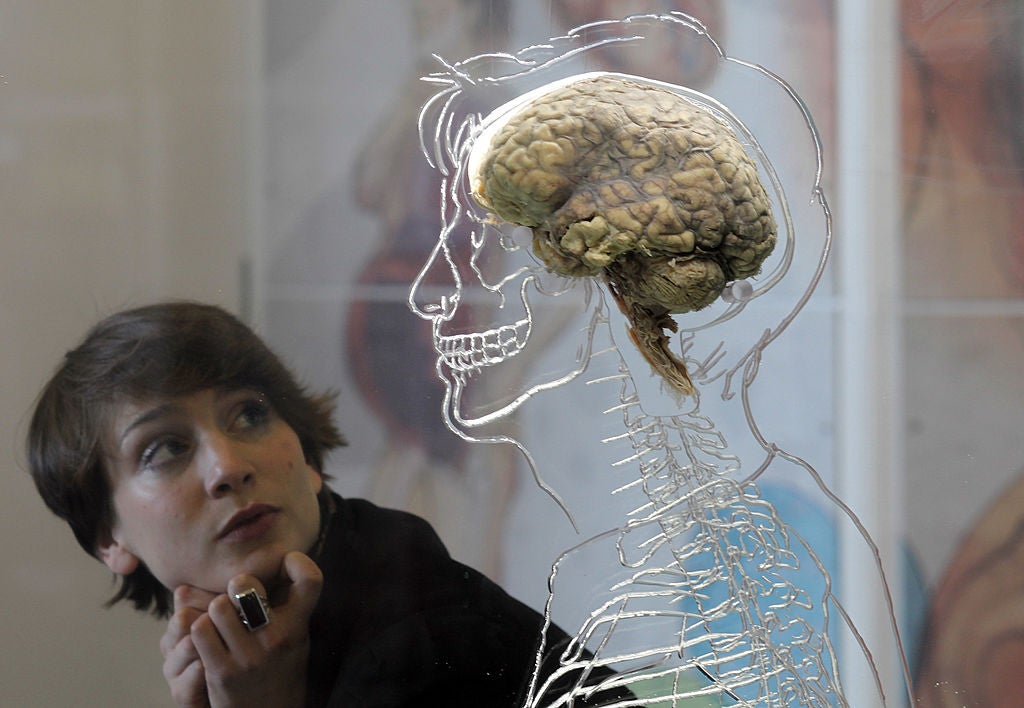'Eureka' moment pinpointed in the brain which could help explain philosophical issues using biology
'Some people think that the nitty gritty of neuroscience is far from the highfalutin stuff that a philosopher would consider'

Your support helps us to tell the story
From reproductive rights to climate change to Big Tech, The Independent is on the ground when the story is developing. Whether it's investigating the financials of Elon Musk's pro-Trump PAC or producing our latest documentary, 'The A Word', which shines a light on the American women fighting for reproductive rights, we know how important it is to parse out the facts from the messaging.
At such a critical moment in US history, we need reporters on the ground. Your donation allows us to keep sending journalists to speak to both sides of the story.
The Independent is trusted by Americans across the entire political spectrum. And unlike many other quality news outlets, we choose not to lock Americans out of our reporting and analysis with paywalls. We believe quality journalism should be available to everyone, paid for by those who can afford it.
Your support makes all the difference.Scientists claim to have discovered a key part of the process by which people come to an ‘aha!’ or ‘eureka’ moment when trying to work something out.
The way the brain decides it knows something is poorly understood.
Much of the ‘thinking’ is believed to go on at a sub-conscious level, which helps explain why people can feel surprised when they suddenly realise the answer to a difficult question.
The Ancient Greek mathematician Archimedes was famously trying to work out how to measure the volume of an irregularly shaped object, when he stepped into his bath.
Seeing the water rise, he realised this corresponded to the amount of his body going into the water, so measuring the water’s volume would provide the answer. He then reputedly ran off naked through the streets of Syracuse shouting “eureka”, meaning “I’ve got it”.
In a new study, researchers from New York, Cambridge and Zurich attempted to work out how and when this kind of thought process happens.
They said their findings suggested that people become aware of having made a decision when the amount of evidence in the brain reaches a certain threshold and jumps from the sub-conscious to the conscious mind.
One of the researchers, Dr Michael Shadlen, of Columbia University, said: “The vast majority of thoughts circling in our brains happen below the radar of conscious awareness, meaning that even though our brain is processing them, we are not aware.
“How some of that information bubbles to the level of consciousness, however, remains an unsolved mystery.
“But now, we've found a way to observe that moment in real time, and then apply those findings to our understanding of consciousness itself.”
The way they did this was to ask volunteers to look at a computer screen showing a number of dots moving about as if they were grains of sand being blown by the wind.
The five test subjects had to decide whether the dots were generally moving to the left or right. They then had to move the hand of a clock back to the time when they thought they had made their decision.
The scientists used what Dr Shadlen described as a “kind of mathematical trick” to show that the speed and accuracy of the decisions “was tied together by the same brain function”.
Using previous research into how decisions are linked to individual cells in the brain, they also concluded that the time the volunteers estimated making the decision was reasonably accurate once a standard gap was taken into account.
While the researchers stressed that this was a preliminary study, they expressed hope that by identifying this “piercing of consciousness” moment they may have opened the door to a deep understanding of the human brain's most complex thoughts and feelings.
And this, they said, could enable biologists to engage in issues that have previously been firmly in the realm of philosophy.
“Some people think that the nitty gritty of neuroscience is far from the highfalutin stuff that a philosopher would consider,” said Dr Shadlen.
“But, rest assured, explaining these concepts — whether it's ethics, consciousness anything else — in terms of neuroscience isn't explaining them away.
“Instead, I would argue that it is helping to bring the biological study of the brain closer to the philosophical study of the mind.”
The research was described in the journal Current Biology.
Join our commenting forum
Join thought-provoking conversations, follow other Independent readers and see their replies
1Comments